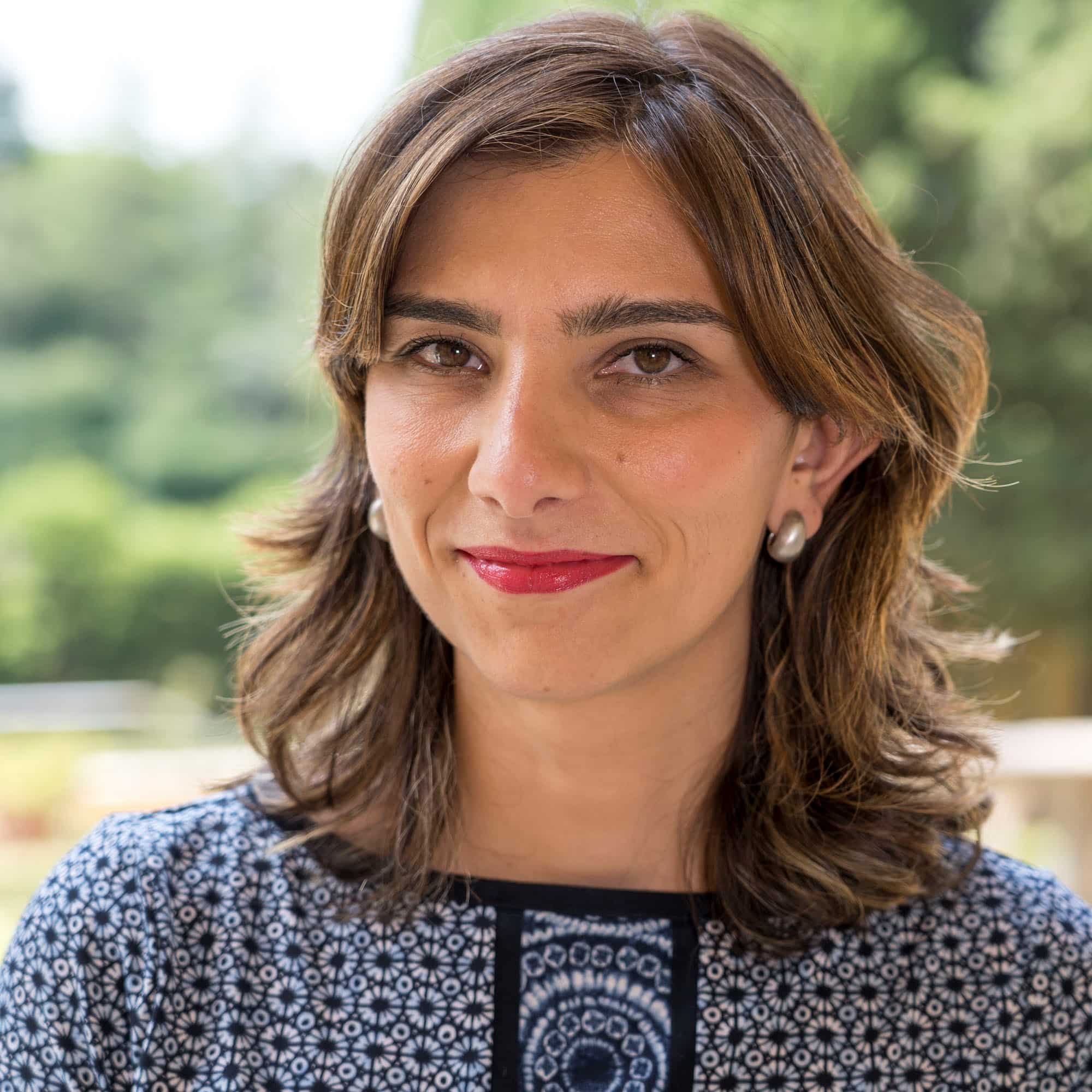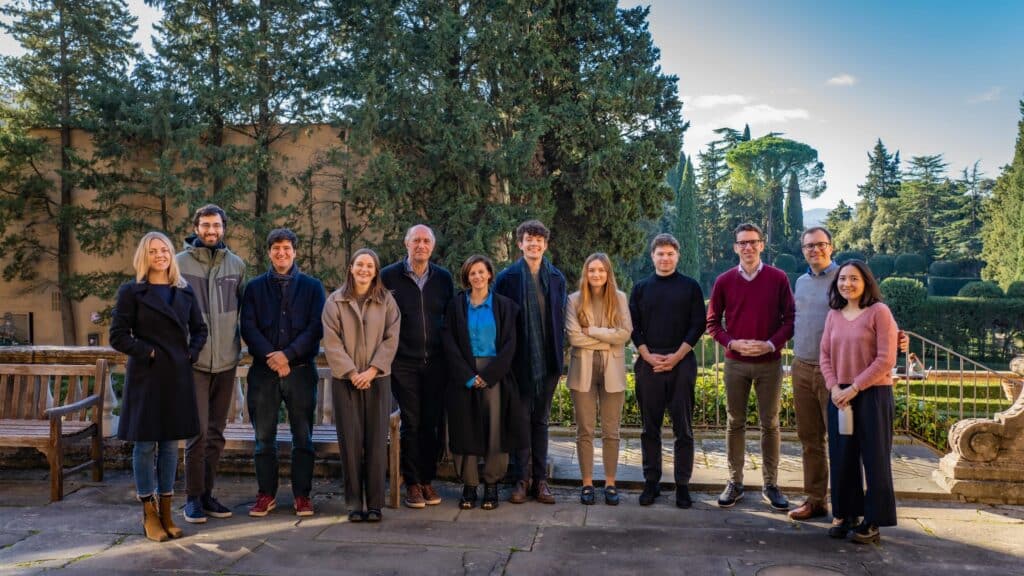Highlights from the Policy Workshop on The Role of GOs in Pursuing Energy Sector Decarbonisation
Highlights from the FSR Policy Workshop on The Role of Guarantees of Origin in Pursuing Energy Sector Decarbonisation
On the 29th of May 2020, the Florence School of Regulation (FSR) hosted an online workshop “The Role of Guarantees of Origin in Pursuing Energy Sector Decarbonisation” directed by Alberto Pototschnig (FSR’s Part-time Professor) and Ilaria Conti (Head of FSR Gas Area), as part of the FSR Regulatory Policy Workshop Series 2019-2020.
Klaus-Dieter Borchardt, Deputy Director-General at European Commission’s DG Energy, together with around nineteen distinguished speakers contributed to the discussion. The workshop considered which role the Guarantees of Origin (GOs) might play in promoting the development of renewable gases and, more generally, renewable energy vectors within a framework aimed at achieving the renewable penetration policy goal at least costs. The relationship between GOs and Green Certificates (GCs) and other support schemes and whether the current governance of the GOs is fit for any new role that they might be called to play in the future were considered as well.
The workshop was structured in two sessions to explore these and related questions on topics:
- Session I: Renewables in the EU Green Deal and Guarantees of Origin – considering what approach might deliver the renewable penetration goal at least costs and what role tradable quota instruments (GCs and GOs) can play in such an approach
- Session II – Guarantees of Origin: Format and Governance – focusing on how the format and governance of the GOs if they were to be ‘upgraded’ and assume a different role in the market, as well as the policy and regulatory perspectives
Background
Europe has given itself ambitious environmental targets, which were set up in line with the 2015 Paris Climate Agreement, and reinforced by the Clean Energy for all Europeans package and the European Green Deal. These targets relate to 1) carbon abatement; 2) increase in the share of final energy consumption from renewable energy; 3) greater energy efficiency.
The workshop focused in particular on the second objective: it is likely that, by 2030, two-thirds or more of final electricity consumption will have to be met by renewable generation – hence both the electricity and gas sectors are called to contribute with a massive increase in the generation from renewable energy sources. [1]
The gas sector will, therefore, be called to play its role, no longer as a mere back-up for renewable electricity generation, but also as a conveyer of “green” molecules.
Incentives for renewable energy
In the electricity sector, most jurisdictions in Europe have mainly relied on feed-in tariffs (FIT), being replaced by feed-in premia (FIP), Green Certificates(GCs) or Investment Grants. In the gas sector, support for renewable gases has been much more limited, which has resulted in limited penetration of these gases.
In this respect, it might be time for an instrument supporting an optional combination of “renewable energy vectors”, and the concept of “sector coupling” challenges us to consider this. Such a tool should provide information on green value/origin of energy vector, should be unrelated to decarbonisation targets (CO2 abatement is a separate target) and should support the integration of “clean” electricity and gas as energy vectors (unlocking the potential of “sector coupling”).
The FSR proposal – A “common currency” for promoting renewable energy in Europe
Several studies and ‘scenarios’ in the last few years tried to imagine what the role of different vectors (renewable electricity, renewable gases, biomass, etc.) would be in the path towards a net-zero economy. The FSR proposal focuses on the way to deliver the overall renewable target at least cost, by promoting a combination of renewable-based energy vectors for which the marginal costs of being “green” is equalised.
In this respect, it might be time for an instrument supporting an optional combination of “renewable energy vectors”, and the concept of “sector coupling” challenges us to consider this. Such a tool should provide information on green value/origin of energy vector, should be unrelated to decarbonisation targets (CO2 abatement is a separate target) and should support the integration of “clean” electricity and gas as energy vectors (unlocking the potential of “sector coupling”).
A holistic approach to deliver overall efficiency in achieving the renewable penetration target requires a “common currency” which provides a consistent (price) signal against which the cost of different technologies and renewable vectors can be assessed.
Guarantees of Origin could be the right instrument. While on one side, GOs were already enhanced as to comprise ‘biogas’ with the RED II included in the Clean Energy Package, their definition would need to be reviewed/extended if they were to take on this new role of “common currency. Secondly, GOs would need to be ‘upgraded’ to become an instrument which would:
- address all energy vectors (instead of only electricity)
- become statutory (and not voluntary)
- no longer have mere information disclosure purpose, but also used for support purposes
This concept would allow to assess and certify the “green origin” of energy, regardless of the commodity, by using a merit order criteria based on cost efficiency. Of course, there are still on-going questions related to the information, the way the “upgraded GOs” relate to existing support schemes, the way to avoid double-counting, etc.
Takeaways from the workshop
- The ambitious targets introduced with the EU Green Deal require a re-thinking of the legislation and instruments currently in place to achieve them. Thinking in terms of ‘sector coupling’ and ‘sector integration via energy vectors’, it might be the right time to conceive an instrument able to facilitate the achievement of the collective EU target of increased Renewable energy (=electricity and gas together) share at least cost in the form of a certificate system.
- RED II Directive extends the use of guarantees of origin for customer disclosure purposes to prove the origin of renewable gases and also it allows the member states to extend the scope of the certificates to non-renewable gases as well. However, the role of guarantees of origin is not only to provide evidence that sustainability compliance has been met or to count sustainable biomethane or renewable hydrogens towards the RED II targets for 2030. That role will continue to be fulfilled by sustainability certificates issued only by officially recognised voluntary schemes based on article 30 of the RED II Directive.
- Certification plays an essential role in the decarbonisation of the energy system and particularly for the gas sector. Certificates are needed to provide proof of the origin and nature of gases. Without reliable and officially recognised system of certificates, it is not possible to test the decarbonisation potential of renewable or low-carbon/decarbonised gases.
- The FSR proposal identifies this instrument as an upgraded version of the existing Guarantees of Origin (GOs) – which would evolve from being an instrument which simply discloses to consumers, on a voluntary basis, the origin of electricity they buy – to become a market instrument highlighting the ‘green value’ of energy achieved at least cost.
- An improved GO system will foster decarbonisation efforts, through increased penetration of renewable energies, under the European Green Deal and will increase EU-wide efficiency in a fully tradable GO market. Standardisation, transferability and tradability should be advanced. For achieving, it is necessary to regulate GOs and disclosure in one piece of legislation (RED II), to institutionalise cooperation, to apply for adequate VAT fraud protection.
- GOs can play a bigger role than so far for disclosure purposes. For the gas sector, GOs could and should serve a wider purpose not only limited to providing proof of origin but also to provide the information required to certify their renewable origin
- Some participants in the workshop raised concern about creating market fragmentation and discrepancy with existing certification systems, as a lack of coordination between different mechanisms could undermine effectiveness and efficiency. Others stressed the importance of defining the scope of upgraded GOs and the linkage with the ETS, together with verification and sustainability equivalence when it comes to importing from non-EU countries. Other aspects (features) would include geographical scope, obligation and obligated entities (parties), issuing body and legislation.
- While there’s a general agreement that market-based mechanisms outperform administratively set support schemes (FIT or FIP), it is important to consider that there is a need for long term risk hedging mechanisms. How to give medium-long term certainty to the market? Political and economic commitments are not enough.
Takeaways from polls
Anonymous view of debates #FSRPolicyWorkshop EU Guarantee of Origin for green gases
Under chairmanship of Alberto Pototschnig
Majority of the audience thinks:
No problem for multi-purposes G.Os and to use them across multiple vectors & multiple countries@FSR_Energy pic.twitter.com/kc9vzT69Dt
— Jean-Michel Glachant (@JMGlachant) May 29, 2020
The majority of participant agreed that:
- They would favour a change in legislation that removes limitation in Recital(55) of RED II where Guarantees of Origin (GOs) are limited to “the sole function of showing to a final customer that a given share or quantity of energy was produced from renewable sources”. In their opinion, GOs could play a role also in promoting an efficient mix of renewable-based energy vectors.
- The greatest added value of a potential upgrade of GOs is simplification and harmonisation of the current certificates system, while at the same time paving the way to a truly sector coupled EU energy system.
- They consider the current governance of the European Energy Certificates System (EECS) suitable to support a new role for Guarantees of Origin to promote an efficient mix of renewable-based energy vectors. Still, it will require a statutory framework and regulatory oversight.
- They do not see a problem in Guarantees of Origin performing multiple roles (disclosure purposes, certification for ETS purposes, promoting an optimal mix of renewable-based energy vectors). In fact, there are benefits in using a single instrument for different purposes as the same unit of energy could be “certified” for more than one purpose (renewable, decarbonised, local).
- If Guarantees of Origin were to be used to promote an optimal mix of renewable-based energy vectors, they would favour them being used across vectors and across jurisdictions.
Notes
[1] With the Clean Energy Package and the Green Deal, the European approach to renewable energy has changed, moving from a national binding target approach to a more collective European approach. Also, in the Green Deal perspective, sector coupling and integration will become the backbone of the future circular, decarbonized EU economy, hence connecting various sectors via energy ‘vectors’.






